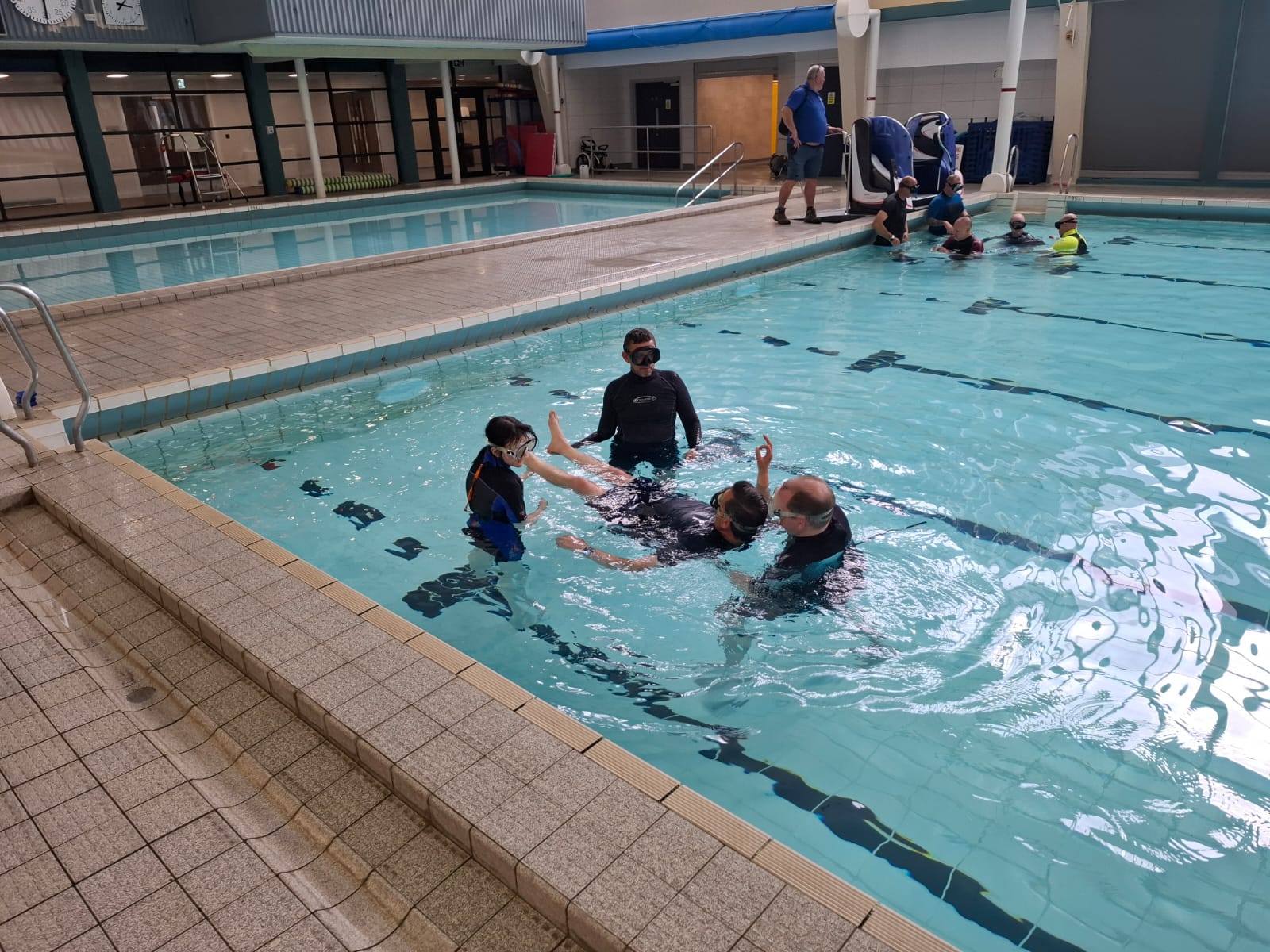


Successful BSAC Instructor Foundation Course Held in Canterbury
After several months of planning and preparation, our Canterbury-based scuba diving club was proud to host a BSAC Instructor Foundation Course (IFC)—right here in our local area.
As the club continues to grow steadily with new members and increasing interest in try dives and training, one of the biggest challenges we’ve faced has been a shortage of qualified instructors. Several members expressed a keen interest in attending an IFC, but with the nearest course previously located in Middlesex, the cost of travel and accommodation was a barrier.
We’re thrilled that BSAC approved and ran the course locally, significantly reducing costs and making instructor training much more accessible to our members.
Around a week before the course, attendees received an email containing mandatory pre-learning materials. This included YouTube videos and downloadable documents, which covered core concepts needed for the day.
The course began at 10 AM with a briefing session, outlining the objectives and structure of the day. The first major task was preparing and presenting a theory lesson. Topics included:
Mask usage
Respiration and the lungs
Dive tables
Hand signals
Each student was required to build a slide deck using the official BSAC Instructor Manual and relevant visual aids. The goal was to ensure the presentations met the BSAC PAVE standard—Progressive, Accurate, Visual, and Effective.
Participants were grouped in a 4:1 student-to-instructor ratio, and each had to deliver their own presentation to the group. Constructive feedback was given throughout, helping students refine their teaching approach.
After the theory session, we moved on to pool preparation. Each student was assigned a specific section of a pool lesson to teach. My section included:
Out-of-air skills
Exiting the pool
Dekitting
REAP (Review, Encourage, Assess, Preview)
We created detailed plans using wet notes, allowing us to reference them during the in-water training.
Before entering the pool, the instructor demonstrated a model lesson on rescue breaths, starting with a SEEDS briefing (Safety, Exercise, Equipment, Discipline, Signals). This helped us understand how to structure safe and effective pool sessions.
The instructor also demonstrated how to break down complex skills into teachable components, ensuring alignment with the BSAC STEP criteria (Safe, Technically correct, Effective Teaching, Progressive). The pace was fast, and although it was occasionally overwhelming, it provided valuable insight into real-world teaching challenges.
After the demo, we each had the opportunity to lead our own pool lesson, covering basic skills and applying what we’d learned. Teaching others—even those already familiar with the skills—forced us to slow down and think more deeply about technique, communication, and safety.
Once the pool training was complete, we returned to the classroom for a final debrief. We were informed that we had successfully passed the Instructor Foundation Course and were given clear guidance on:
What we are now qualified to teach
Next steps on the instructor pathway
The course wrapped up around 7 PM. It was an intense, full-on day—but one filled with learning, growth, and shared passion for scuba diving instruction.